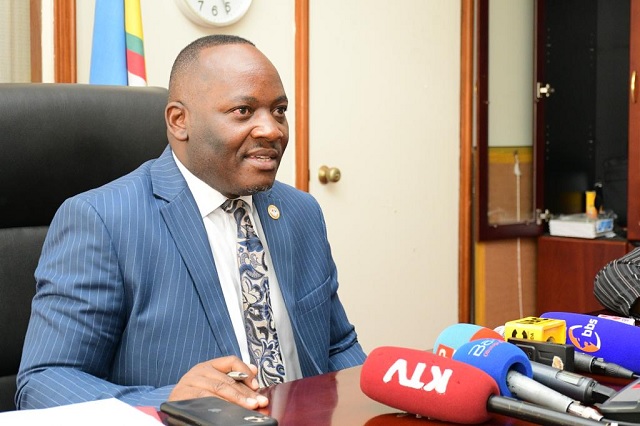
Kampala, Uganda | THE INDEPENDENT | The Leader of Opposition Mathias Mpuuga has queried the allocation of funds in the budget towards deemed energy, describing the funds as very disturbing.
Mpuuga’s statement was in response to a report by Parliament’s Natural Resources Committee on the budget estimates for the Energy and Mineral Developments sector in the next financial year 2022/2023.
In the report presented by West Budama South MP, Dr. Emmanuel Otaala, the committee recommended an additional allocation of 113 billion Shillings to cater for deemed energy costs of the previous financial years and those for next financial year 2022/2023.
Dr. Otaala said that the non-existent or weak grid infrastructure, and insufficient demand, has consistently resulted into government incurring costs for deemed energy.
“For instance, the Committee noted that failure to complete the 132kV Gulu-Agago transmission lines would result into deemed energy costs for unevacuated electricity from Achwa hydro power plant. Although government has provided an additional 80 billion in next financial year budget for contractual obligations or payments arising out of delayed evacuation of power generated from Achwa hydro power plant, the committee notes that provision for deemed energy requires an additional 113 billion,” said Dr. Otaala.
He recommended that funding for Gulu-Agago transmission line should be prioritized so as to complete the line by March 2023, and that government should work out a robust plan to ensure that all power generated is evacuated and utilized so as to eliminate expenditure on deemed energy.
However, Mpuuga questioned the budgetary proposal saying that funds allocated for deemed energy is wastage for a country that has so many financial demands.
Mpuuga’s statement follows a media report indicating that the country has for the last 16 years paid 1.4 trillion Shillings to 13 private power generation firms for electricity that was not consumed.
Previous audit reports by the Auditor General John Muwanga have also queried the expenditure on deemed energy and in his 2020/2021 financial year report, noted the payment made by the Uganda Electricity Transmission Company Limited (UETCL) for deemed energy.
Now Mpuuga proposes that money for deemed energy should be channeled to the Electricity Connection Policy which government seeks to restore in the next financial year.
In the committee report, the Ministry of Energy projects to make 300,000 connections in financial year 2022/2023 under the Electricity Connection Policy (ECP) but the target may not be achieved due to financial shortfalls.
These include 187 billion required for the resumption of the implementation of the targets in the ECP so as to accelerate increased actual access to power, additional 48.5 billion to settle outstanding obligations under UMEME which debt arose out of connections that were made by UMEME but not paid for; due to revenue shortfall during the first Covid-19 pandemic and others.
“The Committee recommends that government provides 48.5 billion for UMEME as settlement of outstanding obligations under ECP. The Committee further recommends that Government allocates additional 187 billion for the resumption of the ECP. The Committee also recommends a provision of 23.3 billion for payment of ECP small power providers in financial year 2022/2023 budget,” said Dr. Otaala.
LOP Mpuuga also proposed that the assent to the Electricity Bill that was passed recently by Parliament is assented to immediately to ensure that the ECP project is funded effectively.
In response, Ruth Nankabirwa, the Minister of Energy and Mineral Development applauded the Leader of Opposition for proposals towards social, economic transformation.
She said that the Electricity Infrastructure Fund under the Electricity Bill passed by Parliament will come into place and hopes that it will have funds to reduce on cost of generation of electricity and in the long run reduce on the end user tariff.
*****
URN
 The Independent Uganda: You get the Truth we Pay the Price
The Independent Uganda: You get the Truth we Pay the Price



The funds should be accountable for.